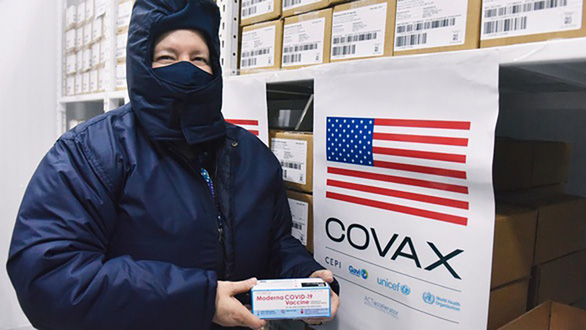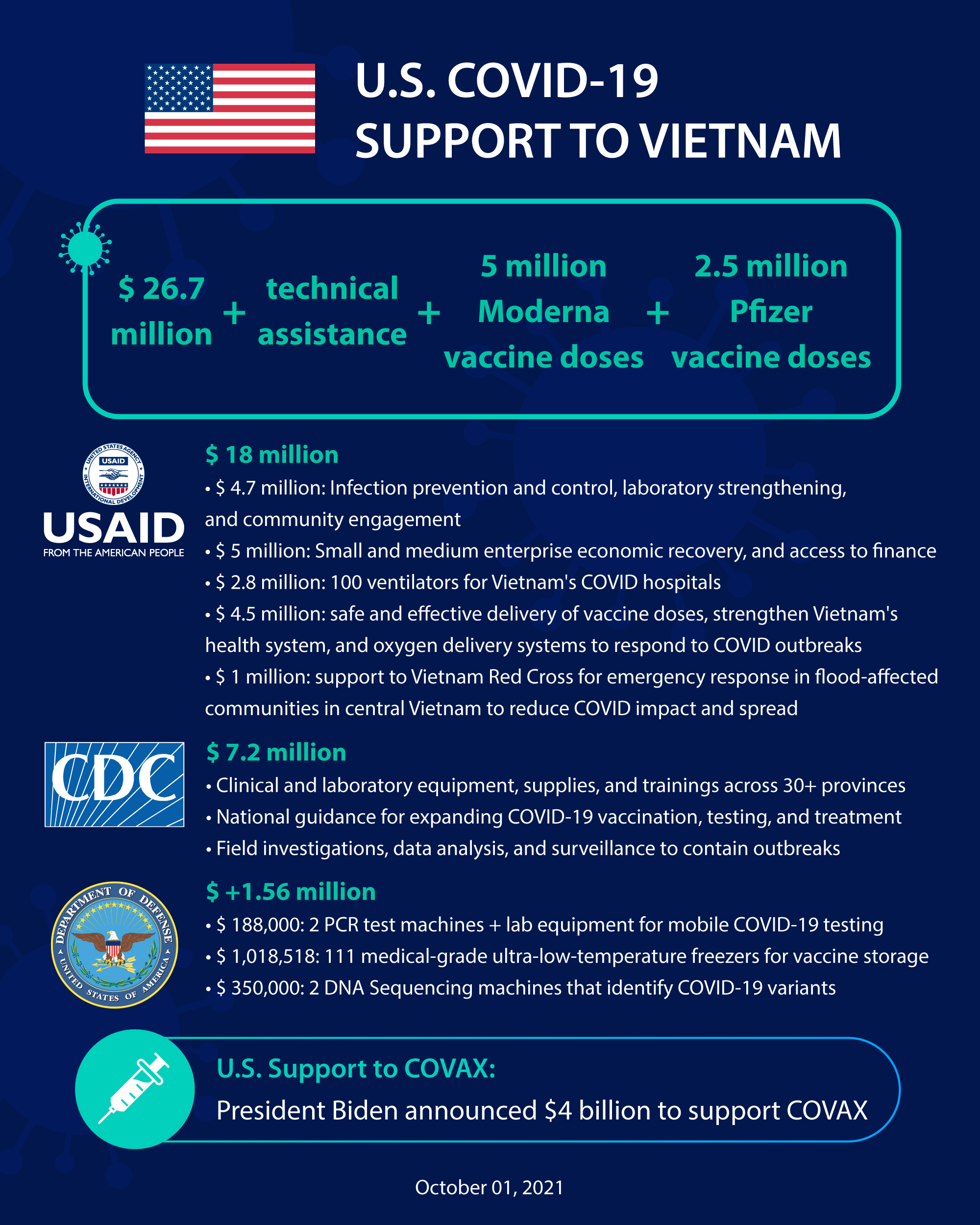The United States is committed to defeating the COVID-19 pandemic and we will use every tool in our arsenal to achieve this collective goal in Vietnam, and around the world.
Safe and effective vaccines are the best tool.
Last Saturday, I was proud to see another 1.5 million Pfizer-BioNTech COVID-19 vaccines arrive in Vietnam.
These doses came directly from the Pfizer manufacturing plant in Kalamazoo, Michigan and were delivered through COVAX.
Vaccinate the world
With this latest donation, the U.S. has provided a total of 7.5 million doses of COVID-19 vaccines to Vietnam.
The U.S. Department of Defense has also provided 111 ultra-low temperature freezers that ensure any vaccines can be stored safely in all 63 provinces and cities.
We are also working with U.S. vaccine manufacturers and our world partners to expand global vaccine production.
The U.S. will continue to donate additional vaccine doses globally as supply becomes available.
Save lives now
The U.S. Agency for International Development (USAID) and the U.S. Centers for Disease Control and Prevention (CDC) have supported Vietnam’s response to COVID-19 with technical assistance and programmatic aid while helping the country procure oxygen support systems for critically-ill patients.
USAID also partnered with the Vietnam Red Cross, using US$1million to prevent the spread of COVID-19 in vulnerable communities.
U.S. assistance is strengthening Vietnam’s health system so that it can better address the current crisis and build the capacity to detect, respond, and combat future pandemics.
Build back better
The U.S. and Vietnam have collaborated in health for three decades, with U.S. assistance to end HIV/AIDS, strengthen Vietnam’s global health security infrastructure, end tuberculosis, and expand health exchanges with our militaries’ enduring security cooperation programs.
In August, Vice President Kamala Harris launched the new CDC Southeast Asia Regional Office in Hanoi during her visit, further demonstrating our commitment to improving health outcomes for the people of this region.
This new U.S. CDC office enables a rapid and effective response to future cross-border disease threats that demand our joint efforts.
The U.S. is committed to ending the COVID-19 pandemic in the U.S., in Vietnam, and around the world.
Last month at the United Nations, President Joe Biden announced that the U.S. is donating an additional half a billion Pfizer-BioNTech COVID-19 vaccines to countries around the globe, with shipments starting in January 2022.
This monumental commitment brings the total number of vaccines donated by the U.S. to over 1.1 billion doses.
We do not share COVID-19 vaccines to secure favors or extract concessions.
Our vaccines do not come with strings attached. We do this with the singular objective of saving lives around the world and supporting a healthy future for a strong, independent, and prosperous Vietnam.
|
|
Like us on Facebook or follow us on Twitter to get the latest news about Vietnam!



















































